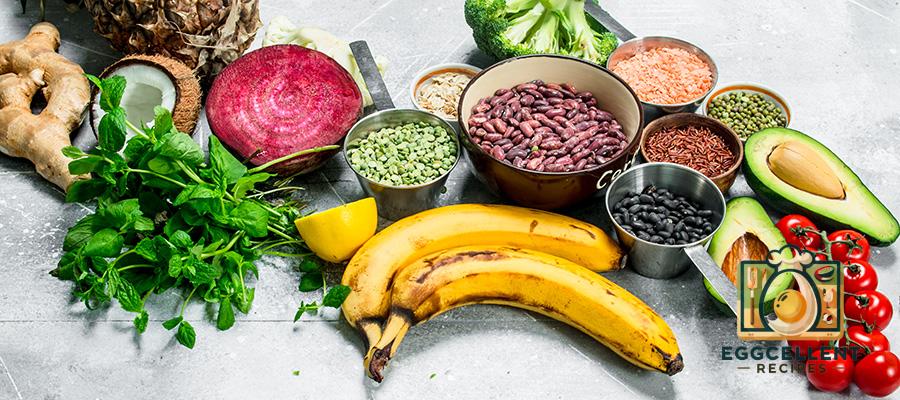
In recent years, the term “leaky gut syndrome” has gained attention in the health and wellness community. Leaky gut, or increased intestinal permeability, refers to a condition where the lining of the small intestine becomes more permeable than normal. This increased permeability may allow bacteria, toxins, and undigested food particles to pass into the bloodstream, potentially triggering inflammation and a range of health issues. While research on leaky gut is ongoing, understanding its potential symptoms and natural remedies may help support digestive health.
What Is Leaky Gut Syndrome?

Leaky gut syndrome is not yet fully recognized as a medical diagnosis in the conventional medical community. However, increased intestinal permeability is a phenomenon acknowledged by researchers and is being studied for its potential role in various health conditions.
The intestinal lining acts as a barrier that controls what passes from the gut into the bloodstream. When this barrier becomes compromised, it may lead to increased permeability, allowing substances to enter the bloodstream that normally wouldn’t.
Potential Symptoms of Leaky Gut
While symptoms can vary among individuals, some commonly reported signs associated with leaky gut include:
1. Digestive Issues
-
- Bloating
- Gas
- Diarrhea or Constipation
- Abdominal Discomfort
2. Food Sensitivities
-
- Increased reactions to certain foods, particularly gluten or dairy.
3. Nutrient Malabsorption
-
- Deficiencies in vitamins and minerals due to impaired absorption.
4. Chronic Inflammation
-
- May contribute to conditions like inflammatory bowel disease (IBD).
5. Autoimmune Conditions
-
- Possible links to diseases such as celiac disease, rheumatoid arthritis, and type 1 diabetes.
6. Skin Problems
-
- Conditions like eczema, acne, or psoriasis.
7. Mood Disorders
-
- Anxiety, depression, or brain fog, possibly due to the gut-brain connection.
8. Fatigue
-
- Persistent tiredness and low energy levels.
It’s important to note that these symptoms can be associated with various health issues, and experiencing them does not necessarily indicate a leaky gut.
Potential Causes and Risk Factors
Several factors may contribute to increased intestinal permeability:
- Poor Diet
- High intake of processed foods, sugar, and unhealthy fats.
- Chronic Stress
- Long-term stress can negatively impact gut health.
- Imbalances in Gut Microbiota
- Dysbiosis, or an imbalance of gut bacteria.
- Medications
- Long-term use of nonsteroidal anti-inflammatory drugs (NSAIDs) or antibiotics.
- Alcohol Consumption
- Excessive alcohol intake can irritate the gut lining.
- Infections
- Certain bacterial or viral infections may disrupt intestinal integrity.
Natural Remedies to Support Gut Health
While research is still emerging, adopting certain lifestyle and dietary changes may help support gut health:
1. Adopt an Anti-Inflammatory Diet

- Whole Foods
- Emphasize fruits, vegetables, whole grains, lean proteins, and healthy fats.
- Fiber-Rich Foods
- Include legumes, berries, oats, and flaxseeds to support digestion.
- Limit Processed Foods
- Reduce intake of foods high in sugar, unhealthy fats, and additives.
2. Incorporate Probiotics and Fermented Foods

- Probiotics
- Consider supplements containing beneficial bacteria after consulting a healthcare provider.
- Fermented Foods
- Include yogurt, kefir, sauerkraut, kimchi, and kombucha to promote a healthy gut microbiome.
3. Increase Intake of Prebiotic Foods

- Prebiotics
- Foods like garlic, onions, asparagus, bananas, and oats feed beneficial gut bacteria.
4. Manage Stress Levels

- Mindfulness Practices
- Meditation, deep-breathing exercises, and yoga can help reduce stress.
- Adequate Sleep
- Aim for 7–9 hours of quality sleep per night to support overall health.
5. Stay Hydrated

- Water Intake
- Drink plenty of water throughout the day to aid digestion and nutrient absorption.
6. Limit Alcohol and NSAIDs

- Moderate Alcohol Consumption
- Excessive drinking can harm the gut lining.
- Cautious Use of Medications
- Discuss alternatives to NSAIDs with a healthcare provider if used frequently.
7. Consider Nutritional Supplements

Before starting any supplements, consult a healthcare professional.
- L-Glutamine
- An amino acid that may support the intestinal lining.
- Zinc
- Essential for immune function and may help maintain gut barrier integrity.
- Omega-3 Fatty Acids
- Found in fish oil, these may help reduce inflammation.
8. Regular Physical Activity

- Exercise
- Engage in moderate activities like walking, cycling, or swimming to promote gut motility and reduce stress.
When to Seek Professional Advice
If you’re experiencing persistent digestive issues or other concerning symptoms, it’s important to consult a healthcare professional. They can help determine the underlying cause and recommend appropriate treatments or lifestyle changes.
Final Thoughts
While the concept of leaky gut syndrome is still under scientific investigation, supporting your gut health through a balanced diet and healthy lifestyle can contribute to overall well-being. Incorporating whole foods, managing stress, staying hydrated, and engaging in regular physical activity are beneficial practices. Always consult with a healthcare provider before making significant changes to your diet or beginning new supplements.






